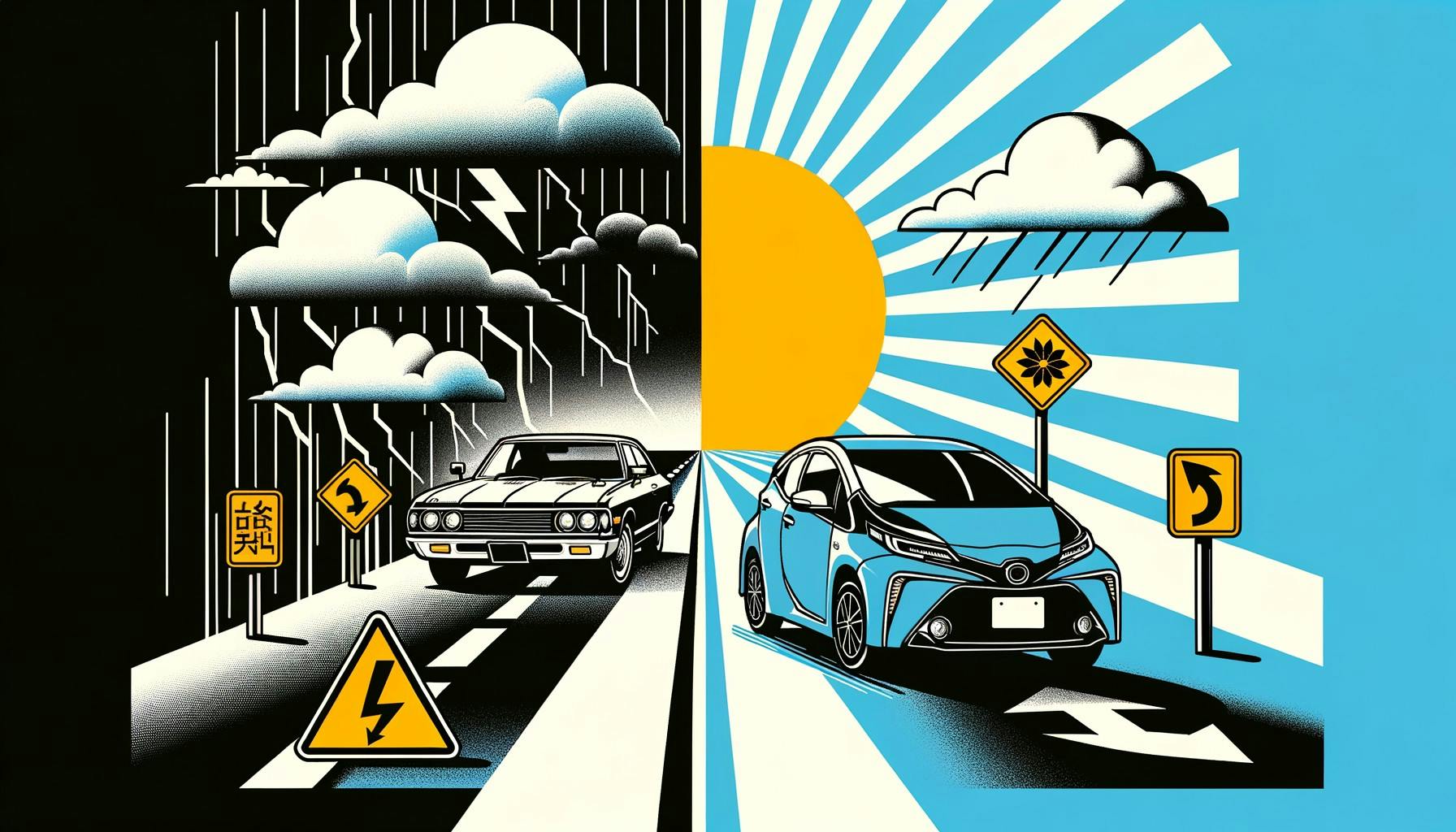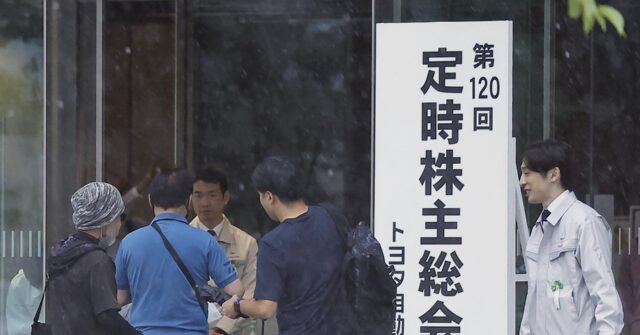






Since its entry into the American automotive market in the 1960s, Toyota has redefined the industry in numerous ways. The company's introduction of fuel-efficient compact vehicles during the fuel crisis gave it a competitive edge over American manufacturers [0cfb2577]. Toyota's models, such as the Camry and Corolla, have become synonymous with dependability and quality, earning brand recognition and customer loyalty [0cfb2577].
Toyota continues to innovate and modernize its vehicles, incorporating features like hybrid powertrains and advanced safety technology. The Prius, despite initial criticism, became a game-changer for the industry with its hybrid powertrain and focus on reducing emissions [0cfb2577]. Toyota's hybrid models, including the Highlander and Corolla, offer impressive fuel economy ratings, appealing to environmentally-conscious consumers [0cfb2577].
The company's success can be attributed to its commitment to building durable, reliable, and affordable vehicles. Toyota has a long history of delivering on its promise of safety and value, which has resonated with buyers [0cfb2577].
A key figure in Toyota's transformation into an automotive titan is Shoichiro Toyoda, a prominent member of the Toyota family. His leadership and vision have played a crucial role in shaping the company's success [0cfb2577].
However, Toyota and other Japanese automakers are currently under fire for vehicle certification issues in Japan. The country's transport ministry has found irregularities in certification applications from Toyota, Mazda Motor, Yamaha Motor, Honda Motor, and Suzuki Motor [8b2f5189]. As a result, Toyota, Mazda, and Yamaha have been ordered to suspend shipments of some vehicles [8b2f5189]. Toyota has temporarily halted shipments and sales of three car models, while Yamaha has halted shipments of a sports motorcycle [8b2f5189]. The transport ministry will conduct an on-site inspection at Toyota's headquarters [8b2f5189].
These issues come in the wake of a safety test scandal at Toyota's subsidiary, Daihatsu, which prompted the ministry to ask automakers to investigate their vehicle certification applications [8b2f5189]. Toyota is also conducting its own investigation into issues related to vehicle fuel efficiency and emissions, with the aim of completing the inquiry by the end of June [8b2f5189]. Despite these challenges, Toyota's impact on the American automotive landscape remains significant, and the company continues to be a popular choice for buyers [0cfb2577].
In June, Toyota's global production declined by 12.9%, marking the fifth consecutive month of decline. Output in Japan fell 18.8% due to irregularities in certification applications, while intense competition with domestic electric vehicle makers in China led to a 21.7% production drop. North American and European production also fell by 6.2% and 6.6% respectively [a47ac7b6].
The decline in production raises concerns about Toyota's market share and competitiveness. However, despite these setbacks, Toyota is expected to report a 21% rise in operating profit for the first quarter. The company's strategic strengths in key markets and favorable currency conditions are keeping Toyota financially resilient [a47ac7b6].
In other news, Toyota shareholders have voted in support of all of the company’s proposals at their annual meeting, including keeping Akio Toyoda, the grandson of the Japanese automaker’s founder, as chairman of the board [7a058a4d]. The annual meeting, held at company headquarters in Toyota city, central Japan, has drawn attention because Toyota and other major domestic makers have been embroiled in a scandal centered around fraudulent certification tests for vehicles [7a058a4d]. Under Toyoda's leadership, Toyota has emphasized hybrids and using hydrogen for fuel instead of focusing on battery electric vehicles [7a058a4d]. Last year, Toyoda won re-election with nearly 85% of the vote [7a058a4d]. Toyota's profits doubled from the previous year to 4.9 trillion yen ($31.9 billion) in the fiscal year that ended in March [7a058a4d].
The improper checks on vehicles were found at Toyota group companies as well as other Japanese automakers. The violations did not result in recalls or safety problems [7a058a4d]. A shareholder proposal requesting that Toyota issue an annual report on its climate-related lobbying activities was rejected [7a058a4d] [8b2f5189].
Toyota Chairman Akio Toyoda's level of shareholder support dropped to 72% at the automaker's annual general meeting, down from 85% last year and 96% in 2022. Proxy advisers Institutional Shareholder Services (ISS) and Glass Lewis had recommended against his re-election due to the company's handling of testing violations. Major foreign investors such as US public pension CalPERS and Canadian pension investor CPP Investments also opposed Toyoda's re-election [f133128c].
Toyota's Chairman, Akio Toyoda, is facing uncertainty as shareholder support declines. His support dropped to 72% at Toyota's annual general meeting, the lowest ever for a Toyota director. Foreign institutional investors showed only 34% support. Proxy advisers ISS and Glass Lewis recommended against Toyoda's reelection due to Toyota's mishandling of certification testing violations. Institutional investors are cooling on Toyoda, reflecting growing discontent with the company's governance. Retail investors remain loyal. The decline in support suggests potential volatility in Toyota's stock. The controversy highlights broader issues of corporate governance and the power of proxy advisers in swaying institutional opinions. [e17a1dbb]